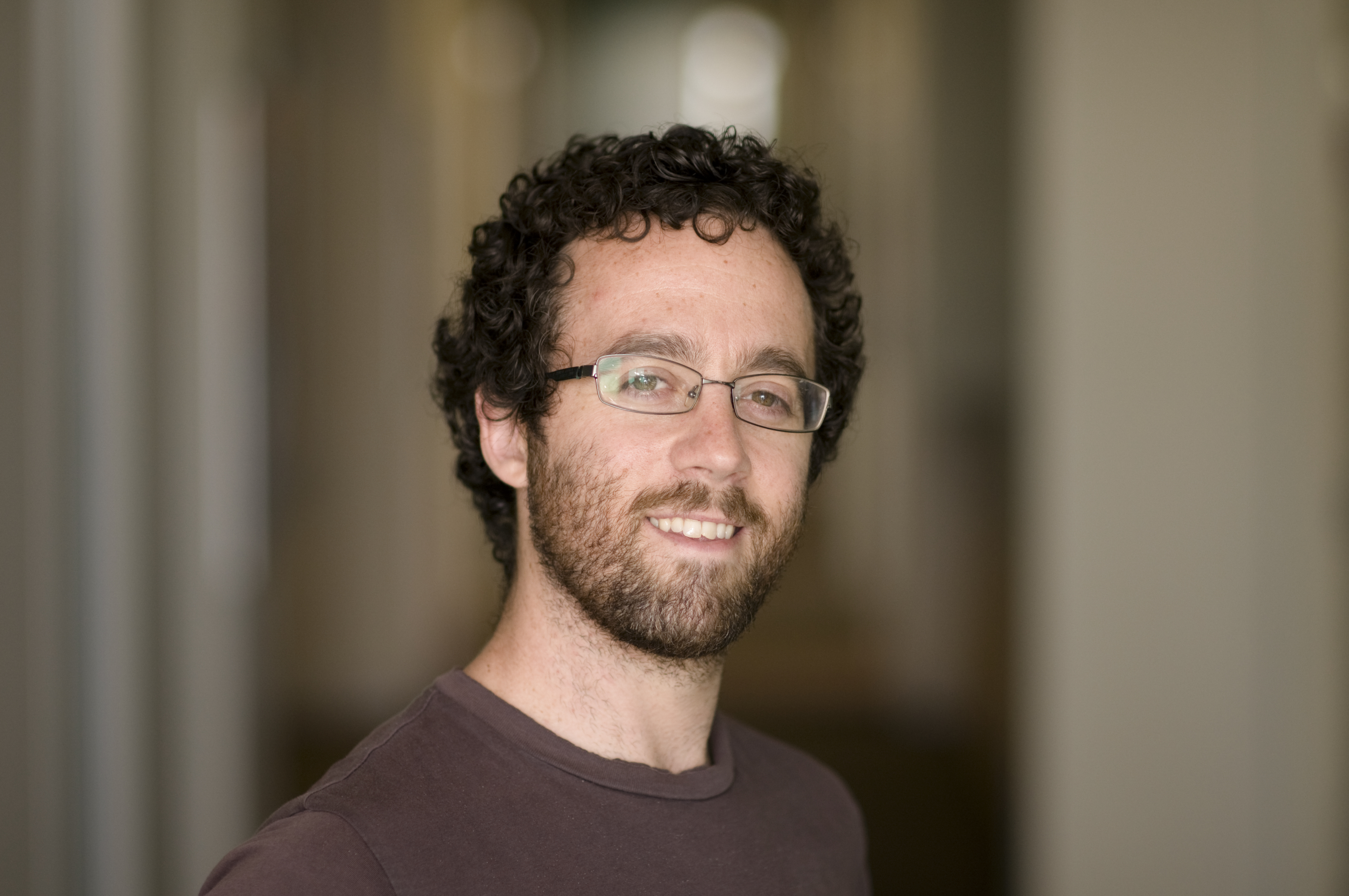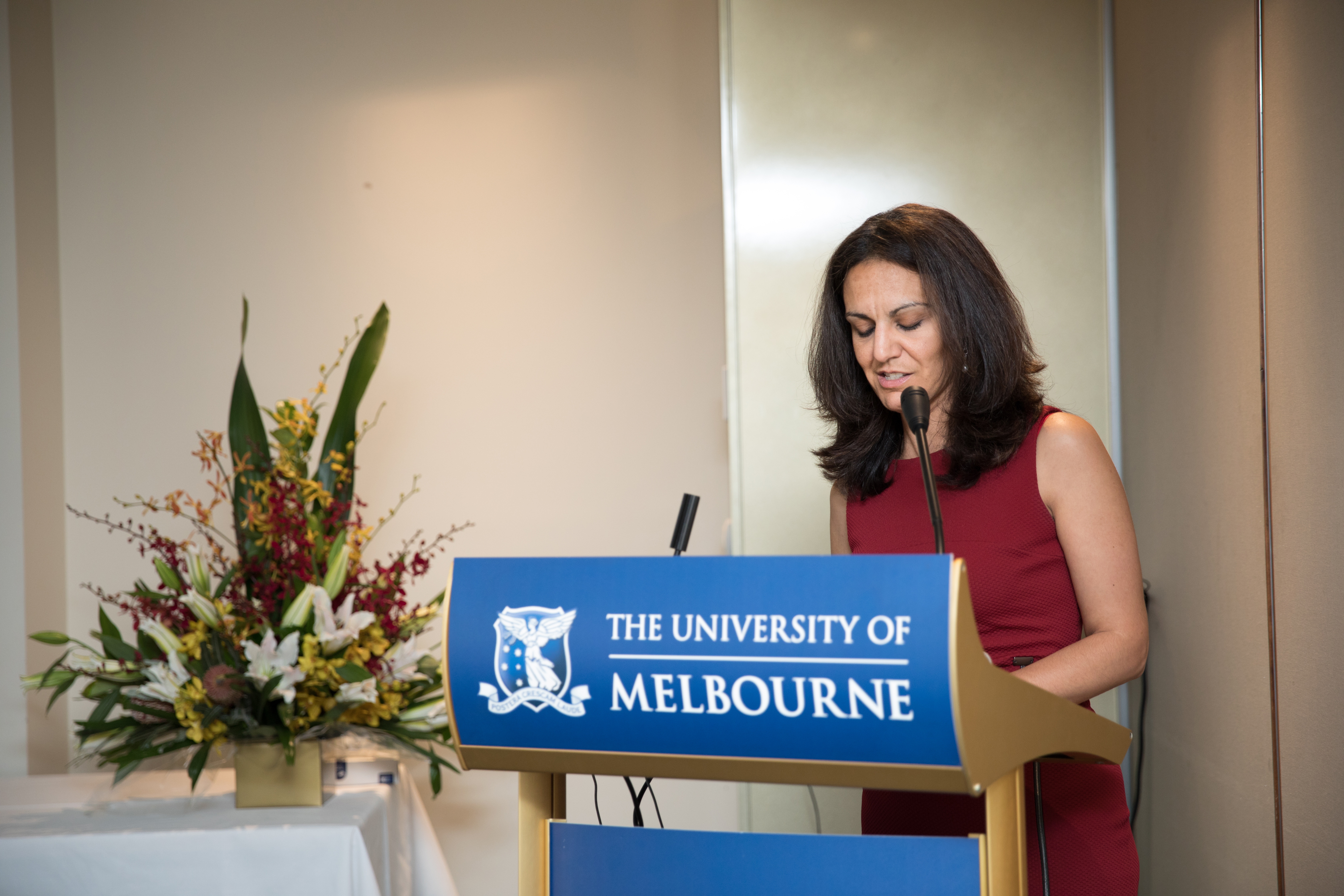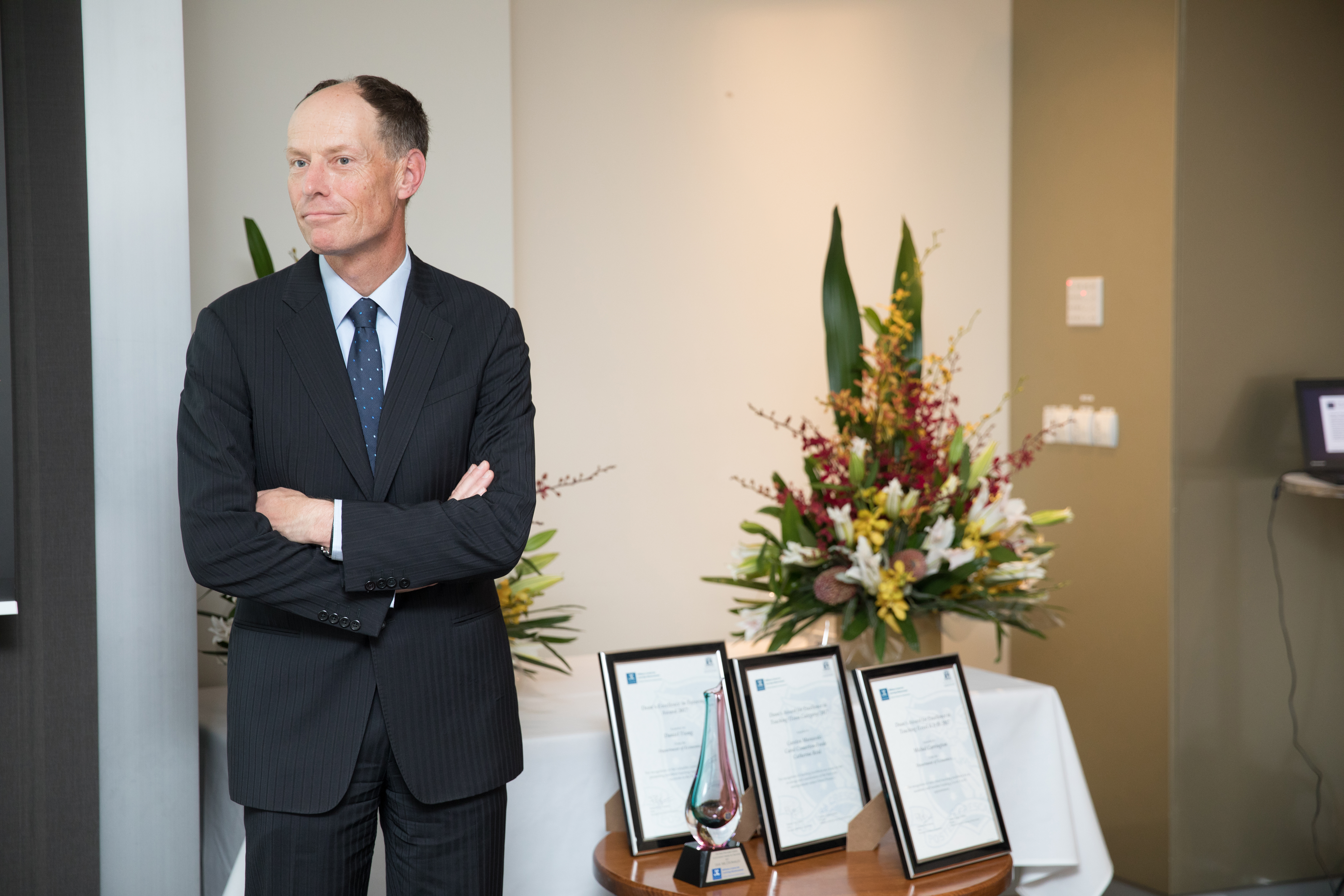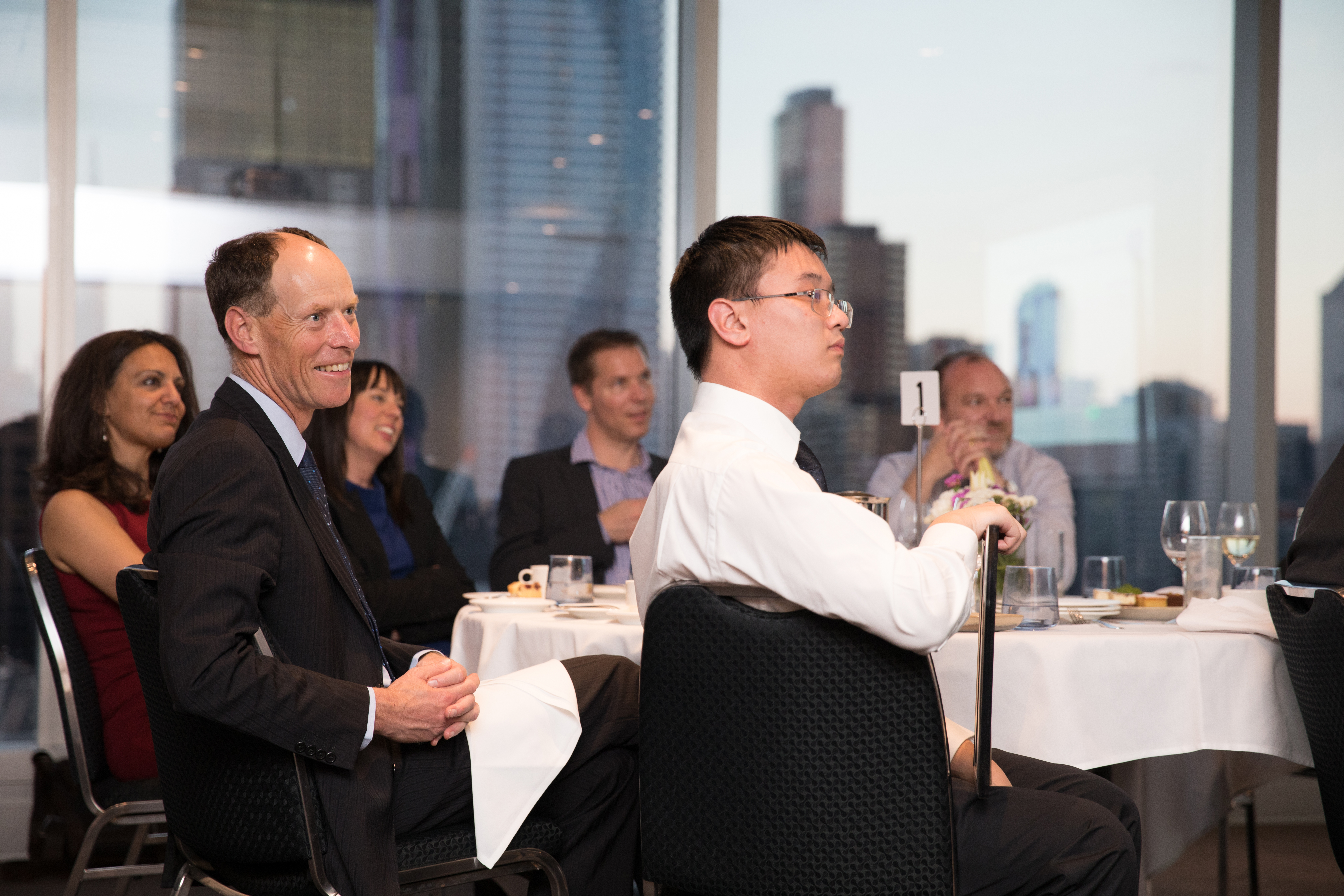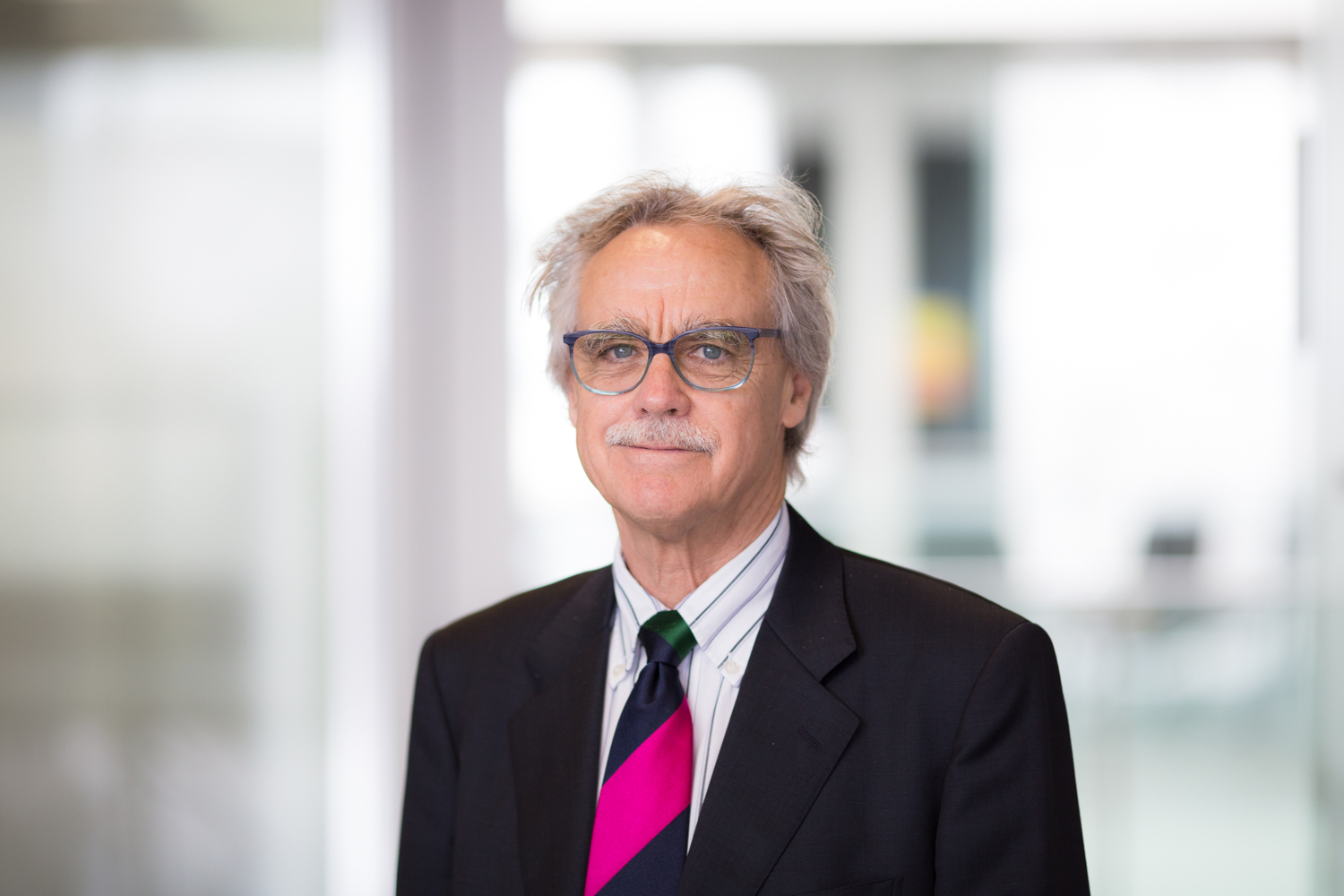Each year the Williams Centre for Learning Advancement recognises and celebrates the valuable contribution of our teachers at the Business and Economics Faculty through the Teaching Excellence Awards.
Professor Paul Kofman, the Faculty Dean, and Professor Angela Paladino, Director of the Williams Centre for Learning Advancement, announced the 2017 winners at a celebratory dinner on Tuesday 21 November.
We spoke to our exceptional teachers about their areas of expertise, and how they create excellent learning environments for their students.
Ross Williams Career Achievement Award in Teaching
Professor Ian McDonald - Economics
You began teaching at the Faculty in 1974, how different was teaching then compared with today?
Back then there were no student surveys, no overheads/slides and no focus by the University on good quality teaching. The academics had a lot of freedom. However, even so, there were incentives to teach well, one being the intrinsic satisfaction of presenting a good lecture and another being the immediate negative feedback from the students if the material was not presented well.
Indeed, in the old days’ students could be somewhat unruly and so the immediate negative feedback was more likely. Throwing paper darts was not uncommon, although not in my lectures. I remember that for some years in the Copland lecture theatre there was a dart stuck way up in the ceiling.
Tell us about the new subjects you have introduced at the Faculty?
In 2004 I introduced the subject Behavioural Economics, it was a new area in economics at the time and perhaps the first subject in behavioural economics in Australia. This was a challenge. It was a new area to me and it involved material outside of economics, especially psychology and sociology.
The first time I taught this subject there was a bit of ‘making it up as I went along’, as shown by a comment by one of the students in the quality of teaching questionnaire who said “this was a really good subject, but it would have been nice to know what we were going to do in the next week”.
In 2016 I introduced another new subject, the Economics of Ageing. When I told one of my colleagues I was going to teach the subject his response was “well Ian, when the students see you they will know that you’re an expert”.
What makes good teaching?
Two very important factors are enthusiasm and clarity.
One golden rule for teaching is never waste the students’ time. They have all sorts of interesting activities to get on with. So never pad out the material and avoid digressions. Professor Ian MacDonald
Carol Johnston Teaching Excellence Award
Associate Professor Adam Barsky – Management and Marketing
The Carol Johnston Award recognises the outstanding contribution of teachers to promote excellent learning opportunities. What are some of the new approaches you have developed to motivate students?
I intentionally design classes that provide maximum autonomy support – where questioning and critical thinking is encouraged, where students have flexibility to decide how they are going to work on projects and solve problems, and where experimenting with new ideas or processes (even when mistakes are made) is accepted and celebrated.
I also try to provide opportunities for personal growth by focusing on experiential learning. Through concrete experiences, students can reflect on the material in a personally meaningful way rather than as an abstract conceptualisation.
Finally, I encourage collaborative work effort, whether in project teams or in class exercises, I try to provide opportunities for students to work together towards a common goal, which allows them to build communities and relate to one another in a positive manner.
If we provide motivating work for students, rather than simply provide work as a means to get a grade or a job, they are more likely to become active learners and flourish academically.
Any advice for students on how to reach their full potential?
Research has shown that our understood theories of intelligence (as well as other attributes) has critical implications for how we deal with adversity and setbacks. People who have a fixed mindset tend to believe that intelligence is fixed and doesn’t change much. As a result, they tend to see work and school as a place to either show how smart they are or avoid showing how smart they are not.
For these people, working hard, having setbacks, persisting on difficult tasks etc. are all indicators of low intelligence and therefore should be avoided. In contrast, people with a growth mindset tend to see intelligence as changing and growing across time, and therefore view challenging tasks as an opportunity to learn rather than display ability. Therefore, they are more likely to persist, bounce back from a setback, and pay closer attention to learning the material.
I would encourage students to see their abilities and skills as a “work in progress”, something that changes and develops over time.
University is not an opportunity to prove how smart you are, it is an opportunity to grow and develop. Associate Professor Adam Barsky
What are the three main skills employers are looking for in the management and marketing sectors right now?
1. Critical thinking rather than declarative knowledge. Your ability to look at information critically and separate fact from fiction matters more than what you can remember.
2. Collaborative skills including emotional maturity, empathy, and perspective taking. You need to be able to work in teams to do well today.
3. Grit. The willingness to persist in the face of uncertainty and setbacks matters more than being able to come up with the next great idea.
Excellence in Tutoring Award
Mr Daniel Tiong – Economics
The Dean’s Award for Excellence in Tutoring recognises the contribution of tutors in promoting excellent learning opportunities. What is the secret to running a good tutorial?
As strange as it may sound, I would say the secret is to know there is no secret! There are many moving parts in a tutorial, and a good tutorial is greater than the sum of its parts.
Perhaps one of the most important things would be this: knowing how to explain something in simple terms. It's been said that if you can't do that, then the chances are you might not understand it well enough yourself! Building a rapport with your students is also critical; you're more likely to listen to someone who treats you with the respect that you deserve, after all.
What do you love most about teaching econometrics?
Definitely the challenge. Any subject that falls under a quantitative banner (for example, any econometrics subject) tends to be viewed somewhat negatively. Econometrics is all about trying to make a sound argument with numbers, yet it's easy to lose sight of the forest for the trees, as they say.
I went into econometrics with one goal: to make econometrics fun! If I can get students to see and appreciate the same things that I do, then I would consider that a job well done. Mr Daniel Tiong
Excellence in Teaching Award (Level A and B)
Dr Michal Carrington – Management and Marketing
The Dean’s Award for Excellence in Teaching recognises teaching excellence. In your opinion, what makes a great teacher?
1. A genuine passion for teaching and for what you are teaching.
2. Willingness to let the students take the reins—at the right times. This requires you to step back and take the role of facilitator of learning.
3. Deep listening: to a range of stakeholders, coupled with an ability to evolve accordingly.
4. Connection and engagement.
You have developed teaching strategies that immerse students in the retail decision-making environment. One of the experiential learning opportunities you designed is the Retail War Games – can you explain how this works?
Business 'War Gaming' is a commonly used simulation technique to strategise and contingency plan when a new competitor enters the market. After 10 years of experiencing this as a professional and running War Games sessions in industry, I decided to incorporate it into my post grad teaching and assessment strategies.
To do so, I divide the cohort into two War Games groups of around 40 students. They then form teams of four to six. During the War Games simulation, which is a three-hour activity, students work through a SWOT analysis to complete a market barrier strategy. It's a pressure-cooker, but it’s also a safe environment and students have fun.
What do you love most about marketing?
How transformative consumer research can positively transform people’s lives and / or the outcomes for the environment.
I love deeply observing people (consumers) and their lives, and harnessing this insight to influence how and what they purchase and consume – for societal benefit. Dr Michal Carrington
Excellence in Teaching Award (team category)
Prof Carole Comerton-Forde (Finance); Dr Carsten Murawski (Finance); Ms Catherine Reid (Education)
You have designed and coordinated the undergraduate subject Street Finance. What is innovative about this subject and how has it been received by students?
One of the main innovations in Street Finance is the close collaboration between staff from the Faculty of Business and Economics and the Melbourne Graduate School of Education in developing, teaching and evaluating the subject.
Another significant aspect of the subject has been the development and growth of partnerships between the University and schools in metropolitan Melbourne. The schools have valued highly the teaching of the Street Finance students.
The subject has also provided the opportunity for high school students from the partnership schools to spend a day at the University consolidating their financial literacy and gaining an insight into what university is like.
What advice would you give to future award nominees?
This subject wouldn't have been possible without the successful collaboration between finance and teaching specialists. Given the University of Melbourne is a large, comprehensive university, it would be exciting to see more initiatives like Street Finance, bringing together specialists from different fields who, together with their students, address an important societal problem.
An important aspect of the subject has been the ongoing consultation with stakeholders to improve the subject, to ensure that content is always up to date, that the subject fits into the high school curriculum, and that students, both at university and in high schools, have the best experience possible. Professor Carole Comerton-Forde, Dr Carsten Murawski and Ms Catherine Reid
Find out more about the Faculty of Business and Economics Teaching Awards.


